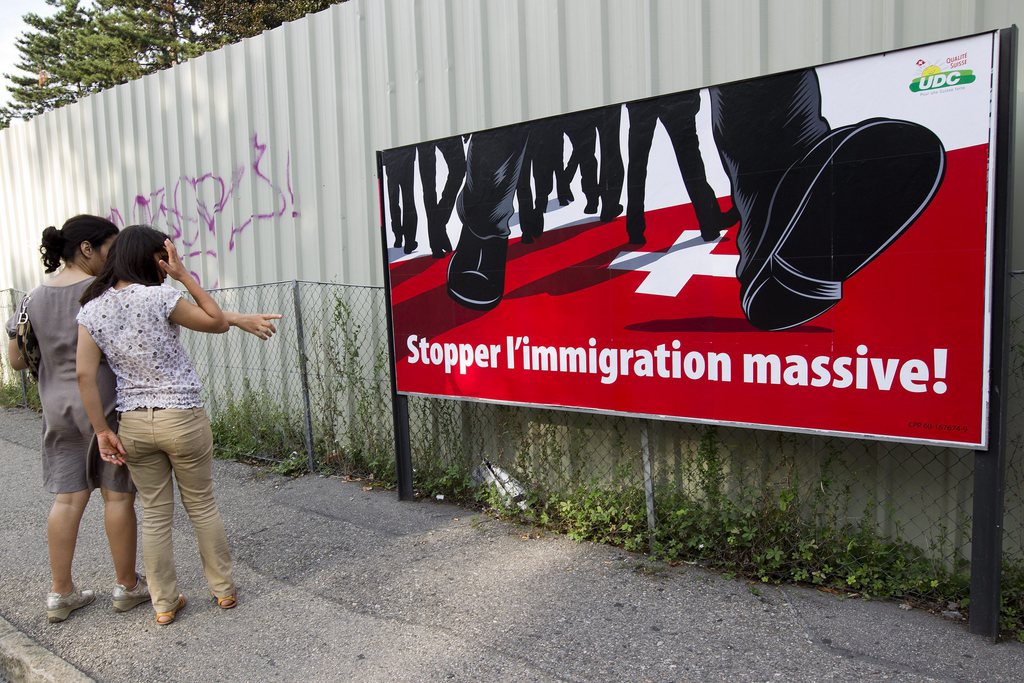Qualified immigrants face job discrimination

Highly qualified workers from other countries, especially Turkey, southeast Europe and Portugal, often face workplace discrimination in Switzerland, says a study from the Federal Commission Against Racism (FCR).
Even those who earned degrees in Switzerland face job setbacks, the study concluded. It shows that highly qualified immigrant workers have an especially hard time finding good work at social institutions, non-profits and non-governmental organisations (NGOs), where they tend to work in positions for which they are overqualified.
On the other hand, multinational companies are the best at integrating workers. Highly qualified foreign workers in Switzerland feel especially comfortable working for such enterprises.
On average, immigrants are three times more likely than native Swiss to be affected by unemployment and to have trouble finding work, but this has only recently become a recognised issue for those immigrants who are highly qualified. Highly qualified migrants – or HQMs, as they are dubbed in the study – made up 46 per cent of all immigrants to Switzerland in 2011.
HQMs from Portugal and Turkey faced over five per cent unemployment in 2010, while similarly qualified native Swiss workers experienced an unemployment rate of 1.5 per cent.
Recommendations
Based on the study’s results, the FCR recommends that workplaces re-examine and standardise their hiring practices and job advertisements in order to avoid discrimination and promote so-called “diversity mainstreaming”.
In practice, this might mean allowing workers to apply for jobs anonymously to avoid prejudice based on an applicant’s name, for example, or taking into account the fact that workers from other countries may have different job application materials than the Swiss standard.
In addition, the FCR asserts that diplomas earned in so-called “third countries” – countries other than Switzerland or the European Union – should be more easily recognised by Swiss employers.
Building awareness and avoiding discrimination should also start early, says the FCR, recommending that vocational school and apprenticeship curricula build in programmes to teach about anti-discrimination, with the help of the federal government.
The study authors compare Switzerland’s employment picture to a sandwich, with most Swiss people in the middle, people from EU countries on top and those from poorer EU nations and “third countries” on the bottom.
Doubts
The Association of Small and Medium-Sized Business has raised doubts over the credibility of the survey.
The association director, Hans-Ulrich Bigler, is quoted as saying a total of 130 interviews is an insufficient basis.
He told the Tages-Anzeiger and Der Bund newspapers that not all qualified foreigners applying for jobs speak the local Swiss languages.
The Swiss Employers’ Association agrees that many citizens from countries outside Europe face more difficulties than others.
Director Thomas Daum reportedly said such discrimination was the result of the accord with the European Union governing the free movement of people across borders.
There were 7,952,600 people living in Switzerland at the end of 2011.
The figure is up 82,400 – or 1% – on 2010.
The influx peaked with a total of more than 90,000 in 2008, before it dropped slightly.
Of the total number of permanent residents, 1,815,800 were foreigners.

In compliance with the JTI standards
More: SWI swissinfo.ch certified by the Journalism Trust Initiative












You can find an overview of ongoing debates with our journalists here . Please join us!
If you want to start a conversation about a topic raised in this article or want to report factual errors, email us at english@swissinfo.ch.